These 20+ Foods Are Harmful to Dogs, and Should Be Avoided at All Costs
Published April 7 2023, 12:44 p.m. ET
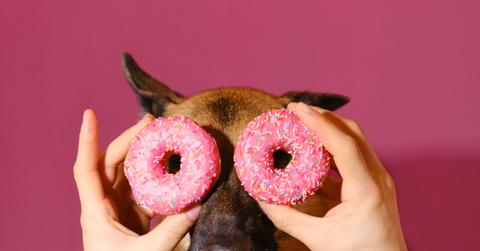
Most of us have been in the following situation: You’re eating dinner and you look over to see that your dog is giving you their best puppy dog eyes with hopes that you’ll give them just a teeny tiny bite of food. Don’t give in!
We don’t always know what foods are good or bad in those moments, but the unknown can cause a lot of damage. To hopefully make these situations easier, we’ve compiled a list of 20+ foods harmful to dogs — let’s keep those pups safe!
READ NEXT: “Cop City” Has Spawned a National Fight to Protect an Atlanta Forest
Grapes
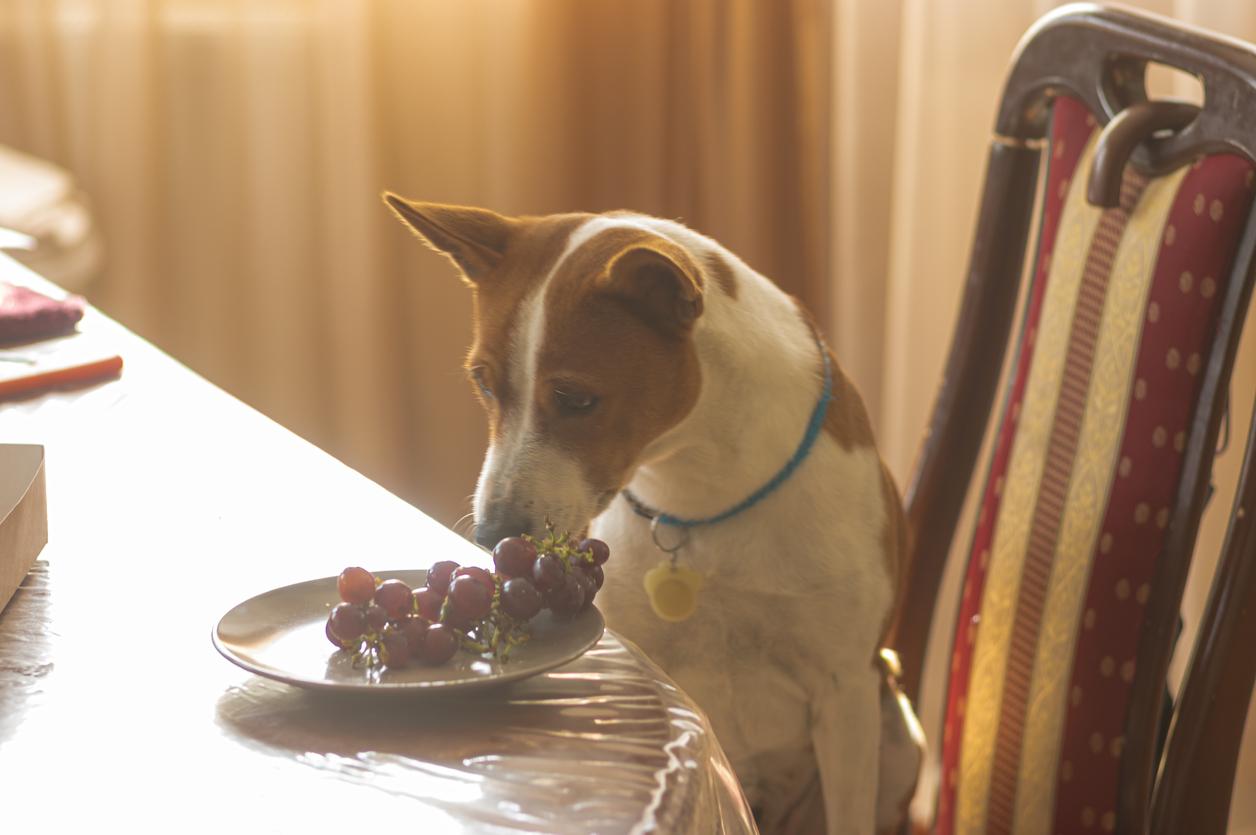
Many know that grapes are off-limits, but most aren’t sure why. Grapes are actually highly toxic to dogs and can cause kidney failure, according to GoodRx Health. Only a few grapes need to be consumed to result in serious health issues.
Avocado
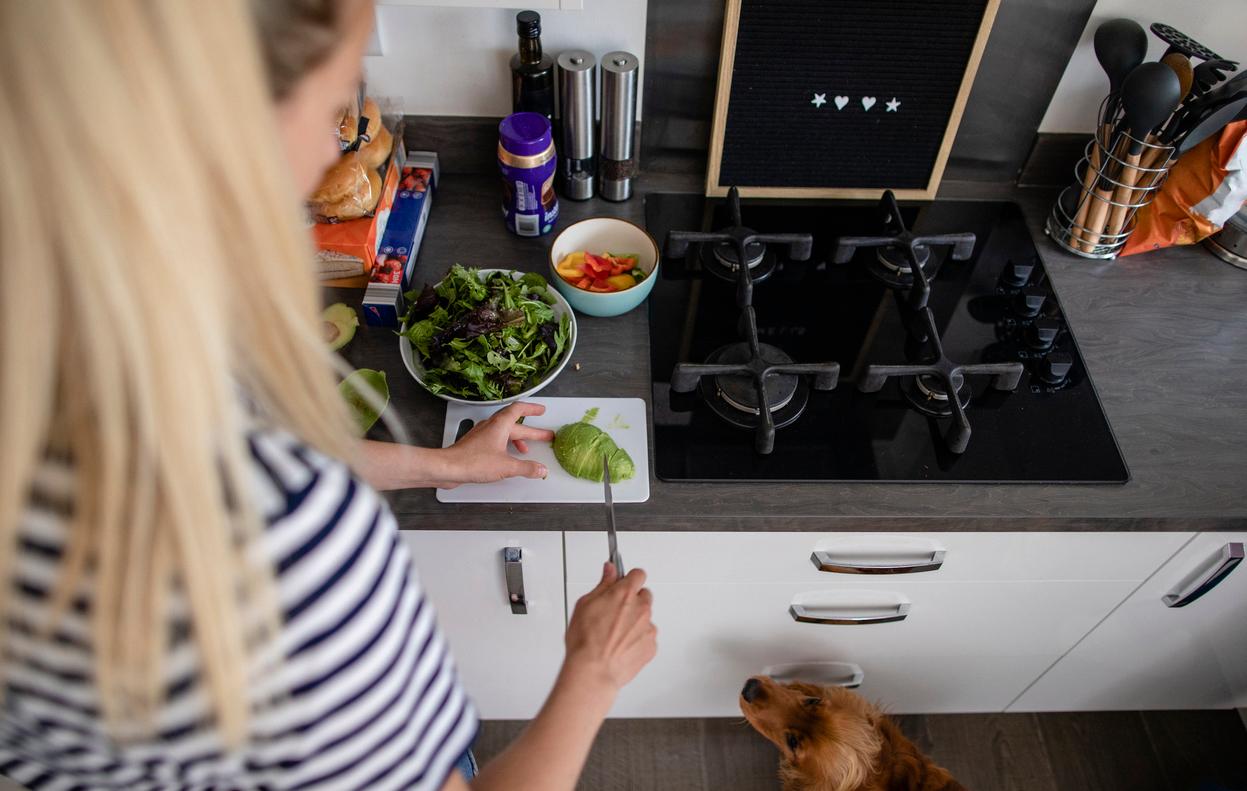
While avocado is good for humans, it’s not the best for dogs. For us, it’s considered a “healthy fat,” but this is actually the exact reason it’s unhealthy for dogs — its fat content is so high that it can cause pancreatitis. Avocados also contain persin, which can make dogs extremely sick.
Onions
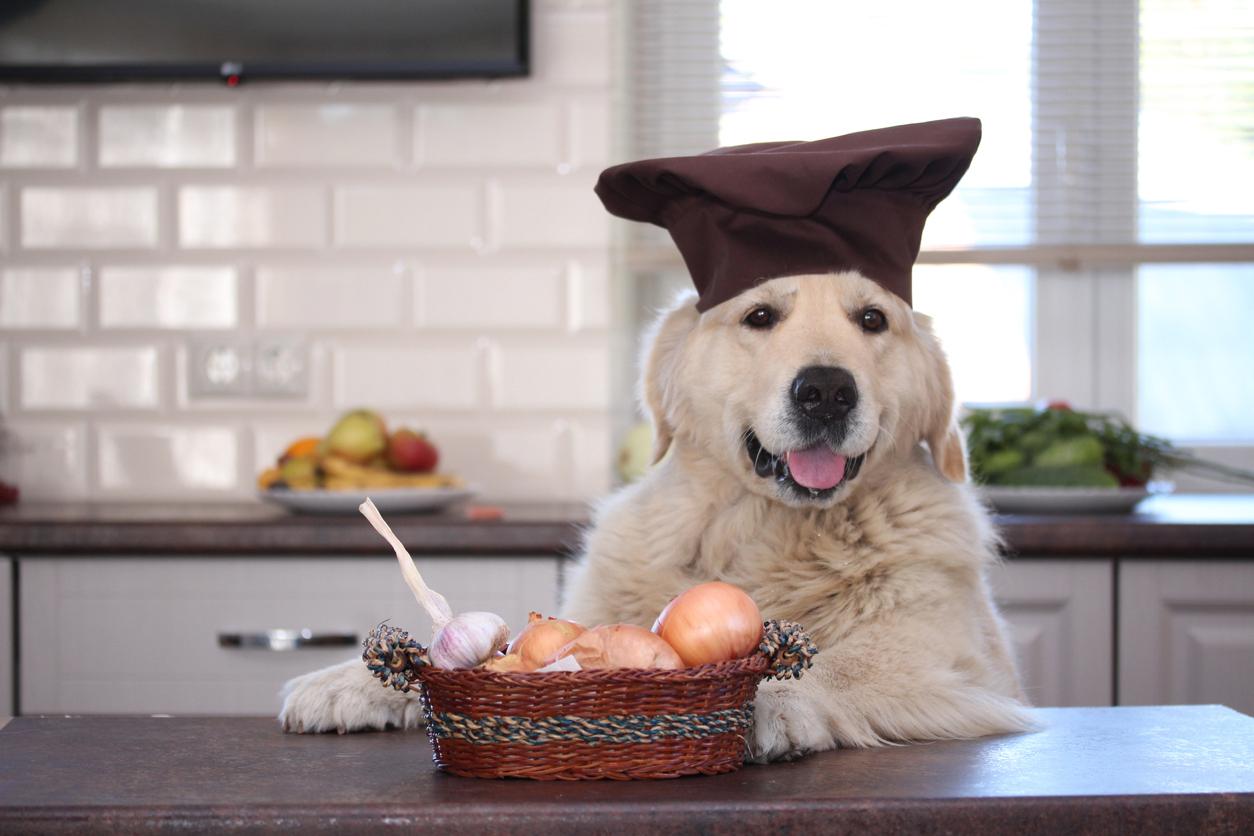
Onions can damage a dog’s red blood cells, which can result in anemia. Many food items contain onions, so it’s always important to double-check the ingredients before feeding your dog something.
Garlic
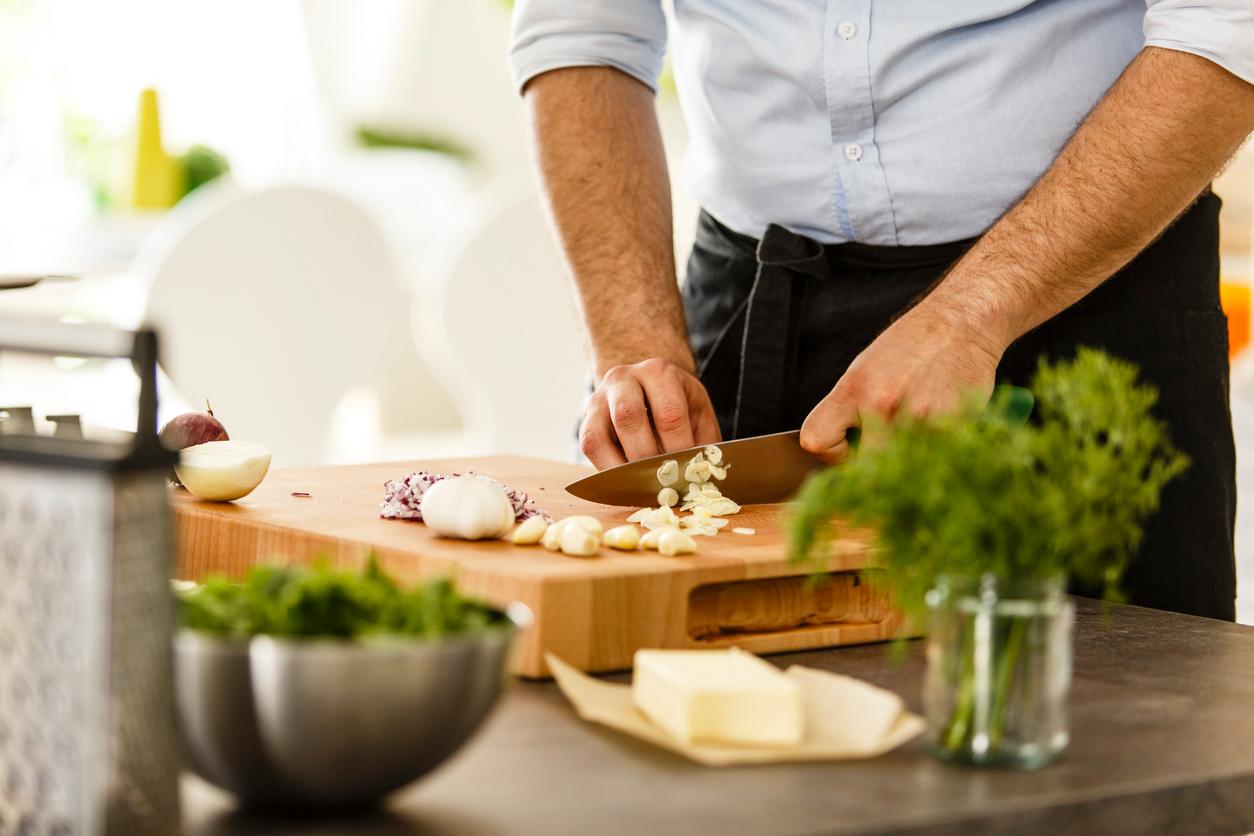
If you’re someone who cooks often at home, you know that pretty much every dish has garlic. And if you’re also someone that gives your dog leftovers, this can be a big problem. Garlic is actually the most toxic plant in the allium family — it can damage dogs’ red blood cells so much that they could rupture, GoodRx Health explained.
Some types of peanut butter
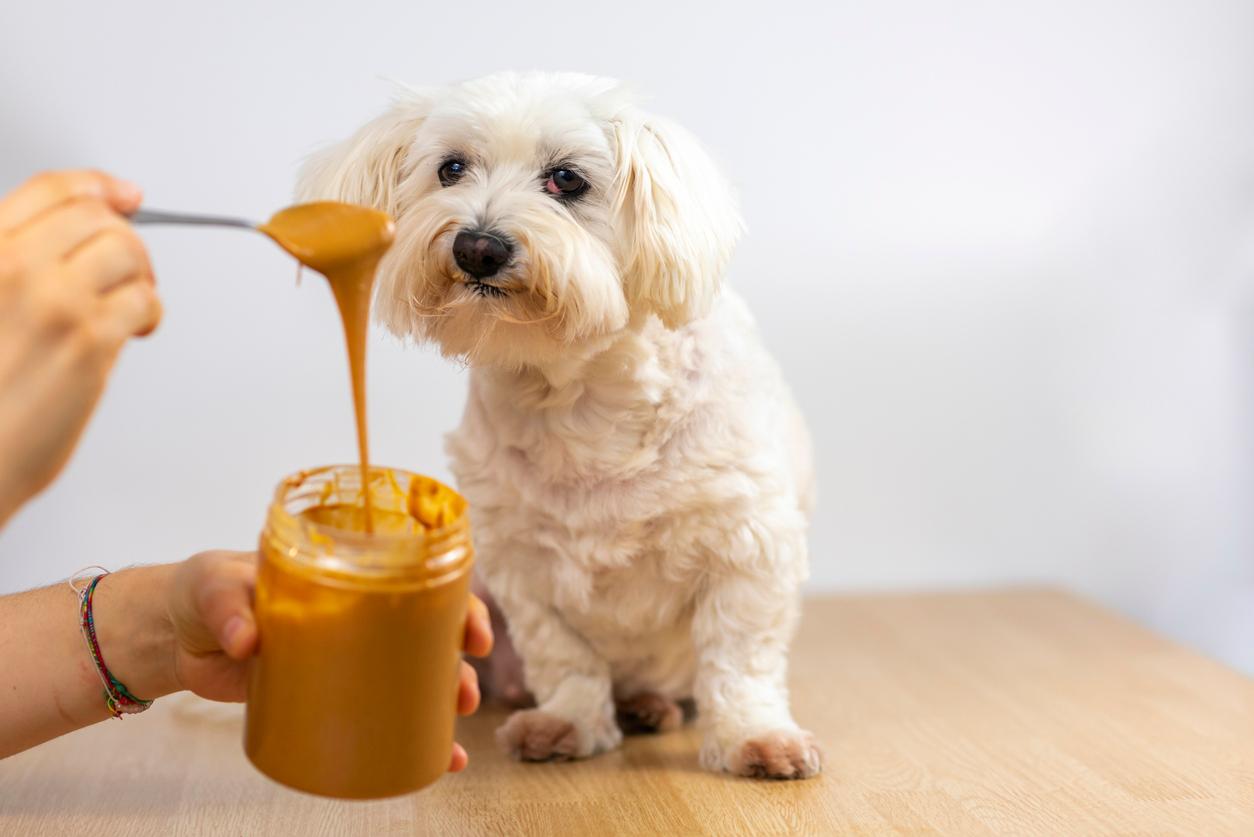
Peanut butter is a common treat for pet parents to give their dogs. Most of the time, this makes for a perfectly safe treat, but sometimes it can be harmful. Some peanut butters or other nut butters contain xylitol, which can cause low blood sugar, liver failure, seizures, or even death. All it takes is a small amount, so always check the ingredients!
Chocolate
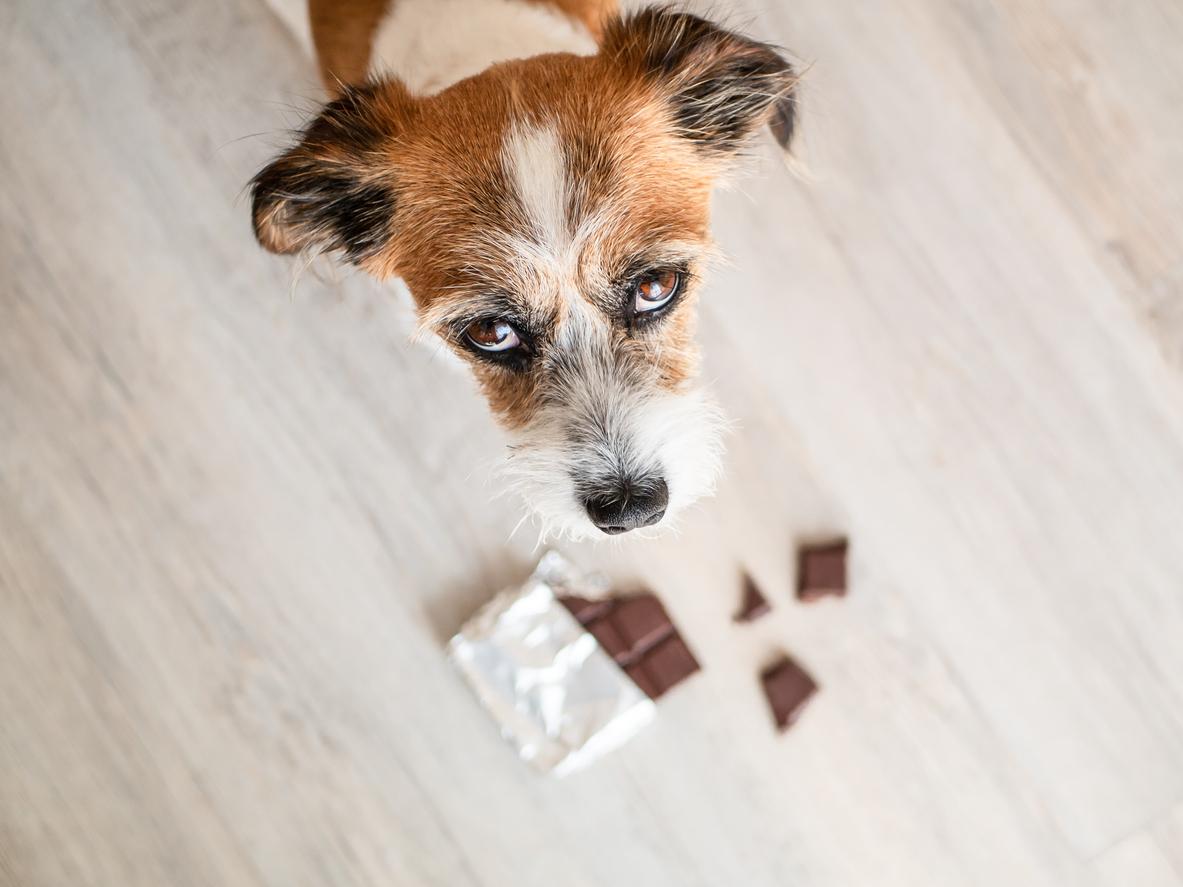
If a dog consumes chocolate, it can cause serious problems in the heart and central nervous system — these issues have the potential to become deadly. This is due to the theobromine and caffeine content. No type of chocolate is safe, but dark chocolate is especially dangerous, as it contains even more theobromine. Call your vet immediately if your dog consumes chocolate.
Raw meat
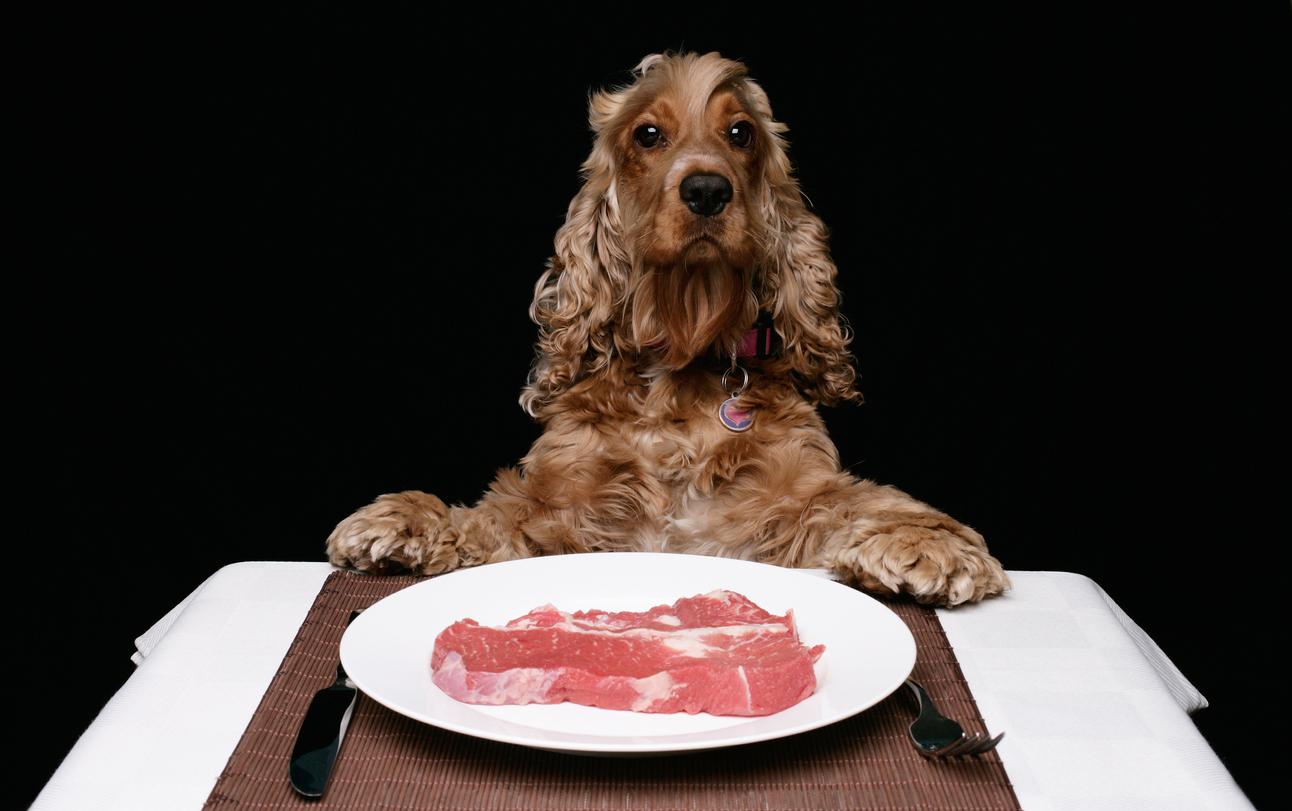
You might’ve seen some pet parents on social media feeding their dogs a “raw diet.” Well, this could actually make your dog very sick due to bacteria like listeria, E. coli, and Salmonella. The main takeaway here: Don’t believe everything you see on the internet.
Cherries
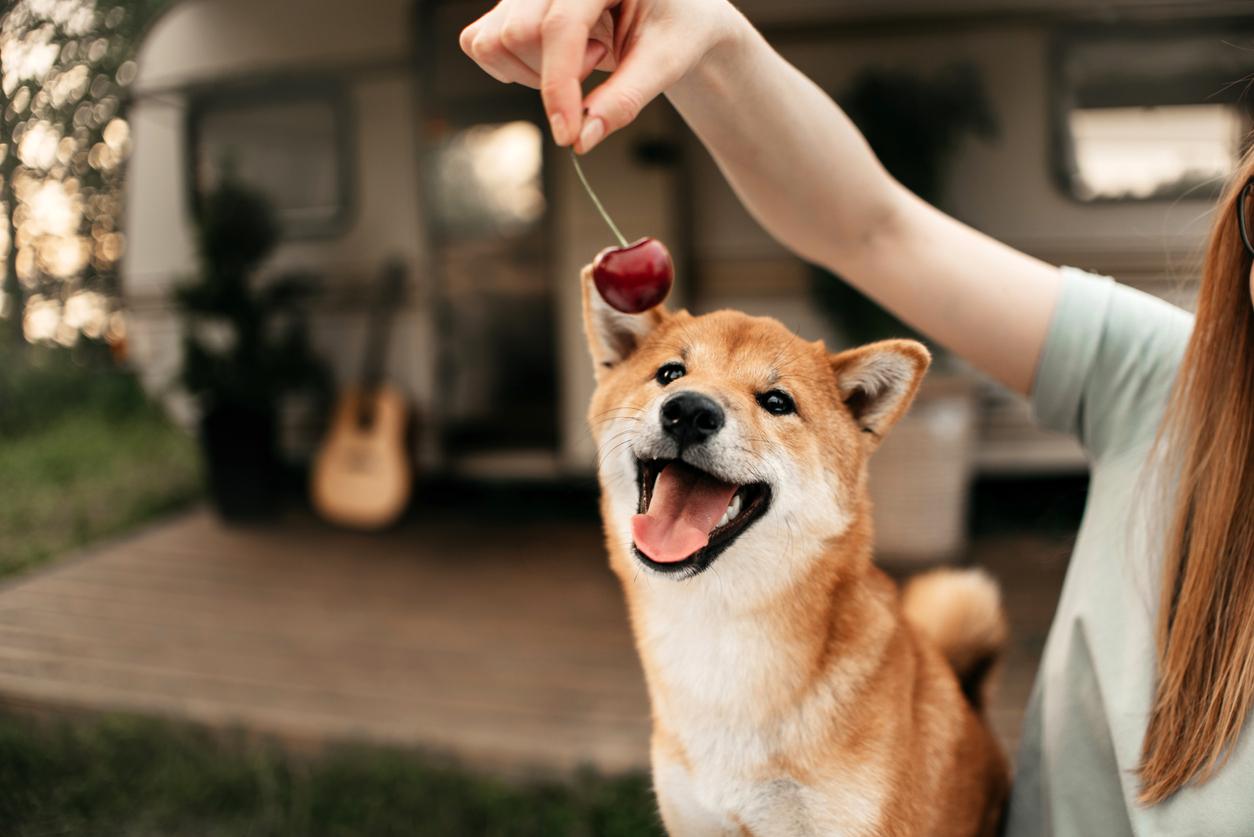
Cherry pits, leaves, and stems contain cyanide, a chemical that kills tissues and is potentially deadly. While the fleshy part of the cherry is cyanide-free, it’s still not recommended for dogs as it can be a choking hazard.
Wild berries
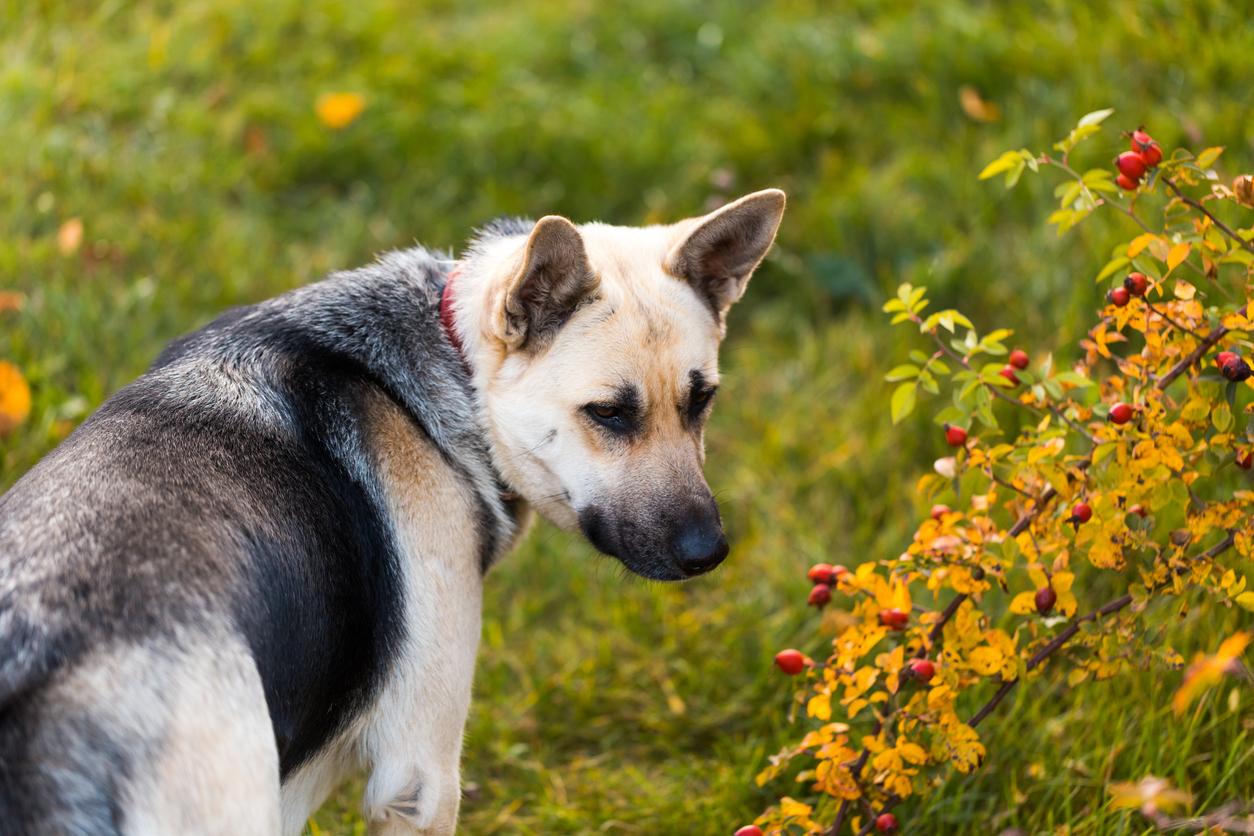
If you have wild berries in your yard or other places you frequent, it’s important to keep a close eye on your dog. These tiny berries are anything but harmless — they can actually be poisonous! While it’s true that not every kind is harmful, it’s not worth the risk.
Mushrooms
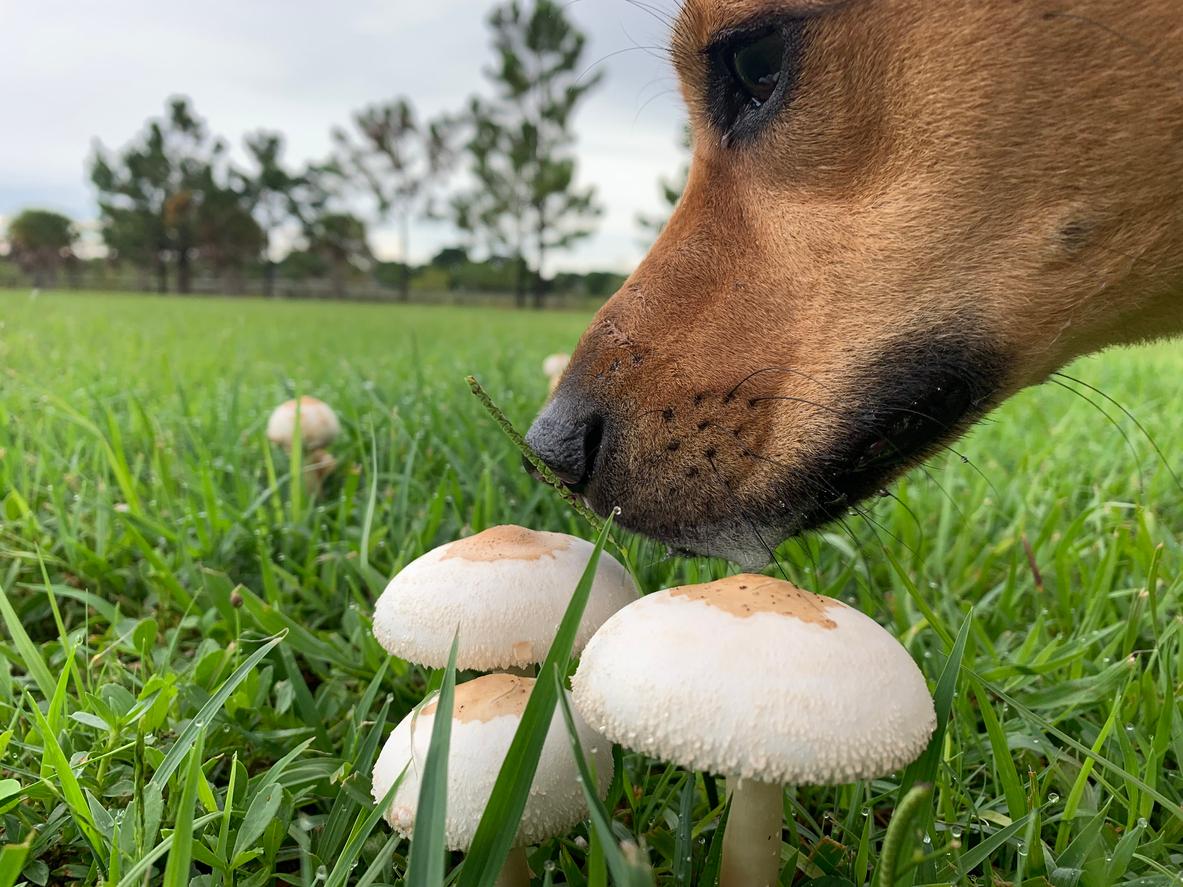
Similar to wild berries, not all mushrooms are bad for dogs, but the ones that are can be deadly. GoodRx Health explained that mushrooms can be very hard to identify, even for experts, which is why it’s important to never allow your dog to consume them.
Tomatoes
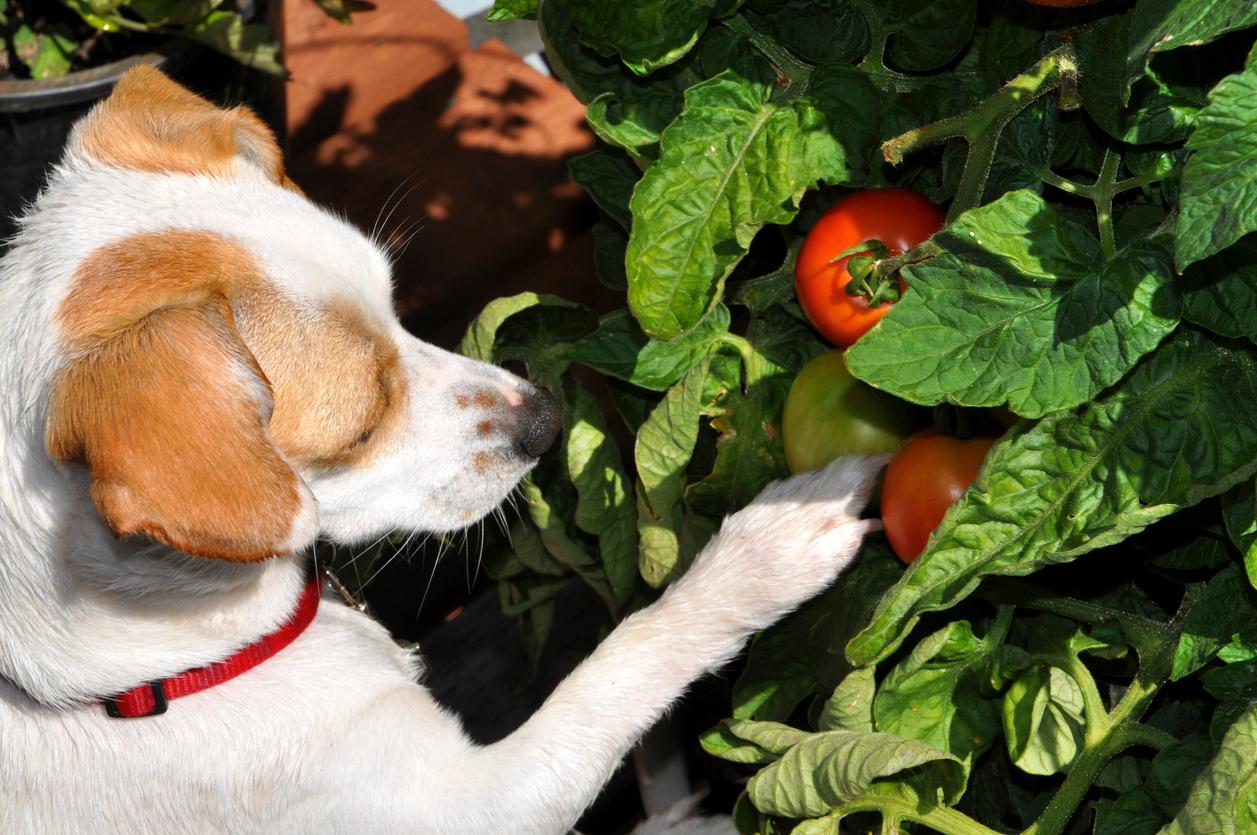
Fully ripened tomatoes are safe for dogs. On the other hand, green or unripe tomatoes are definitely not — the green parts contain solanine, a substance that is toxic to dogs. So while you can technically give your dog tomatoes, there are still a lot of risks involved.
Rhubarb
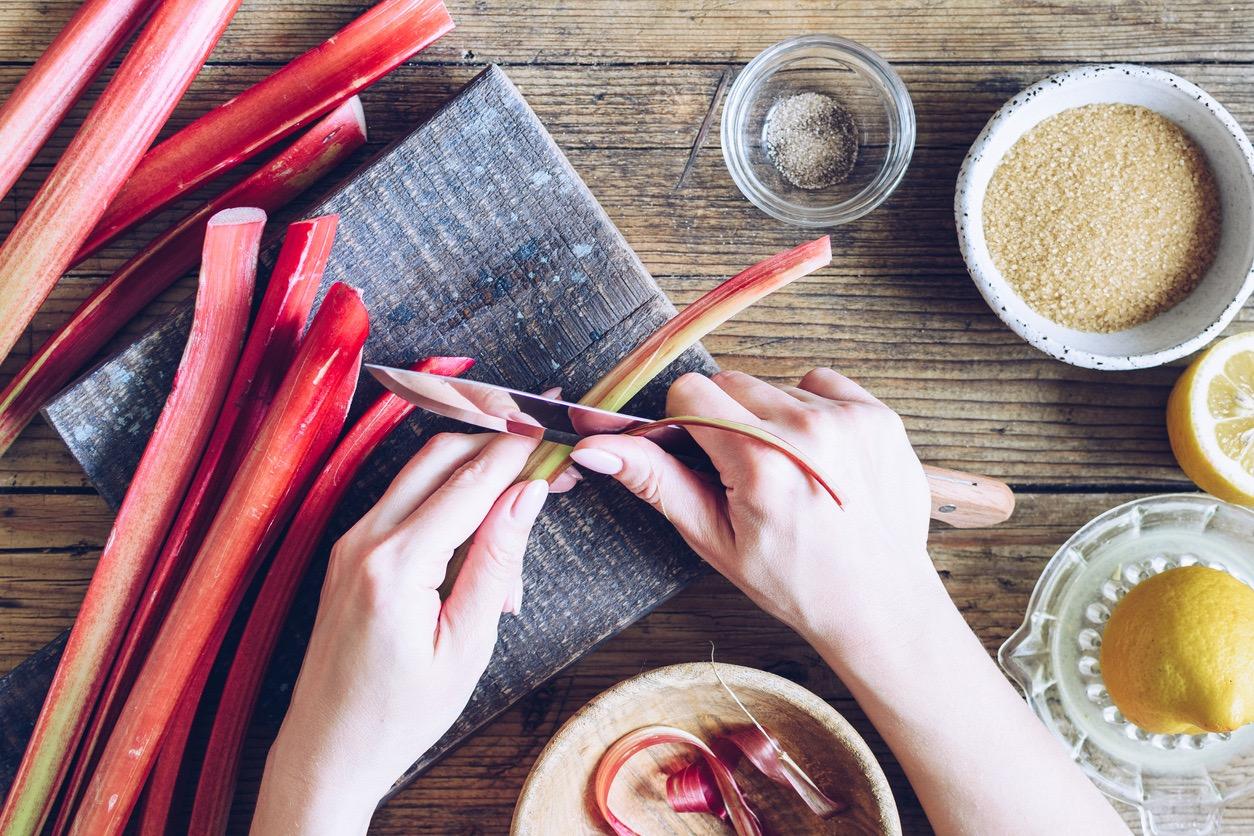
Rhubarb can cause kidney failure in dogs due to the presence of soluble oxalate crystals. Some people grow this plant in their garden and use it in pies, hence its nickname the “pie plant.” Make sure to keep an eye on your dog if they are ever around this food item!
Ice cream
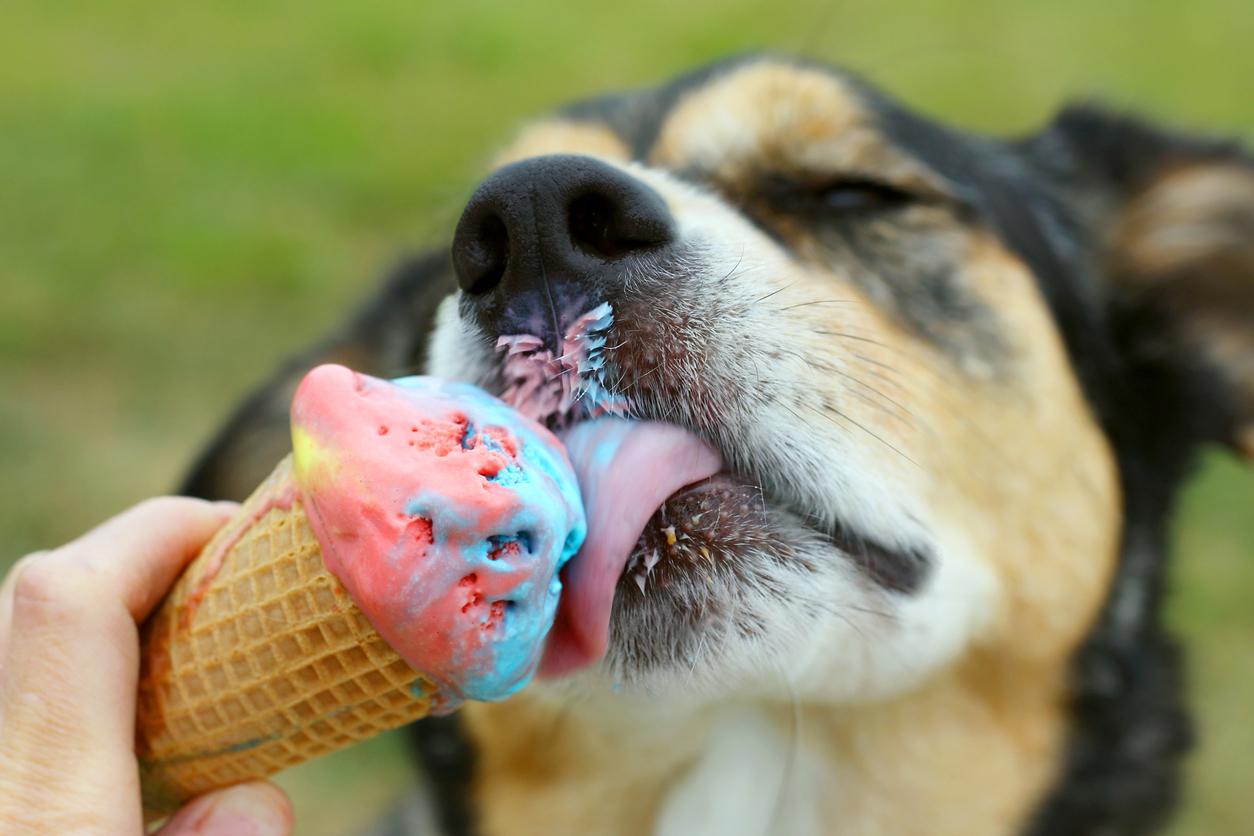
Listen, we all know how cute dogs look when they’re licking an ice cream cone. But what’s not cute is your dog vomiting and having some serious diarrhea. Milk products tend to come with a lot of digestive troubles for pups, so it might be better to skip the ice cream.
Moldy food
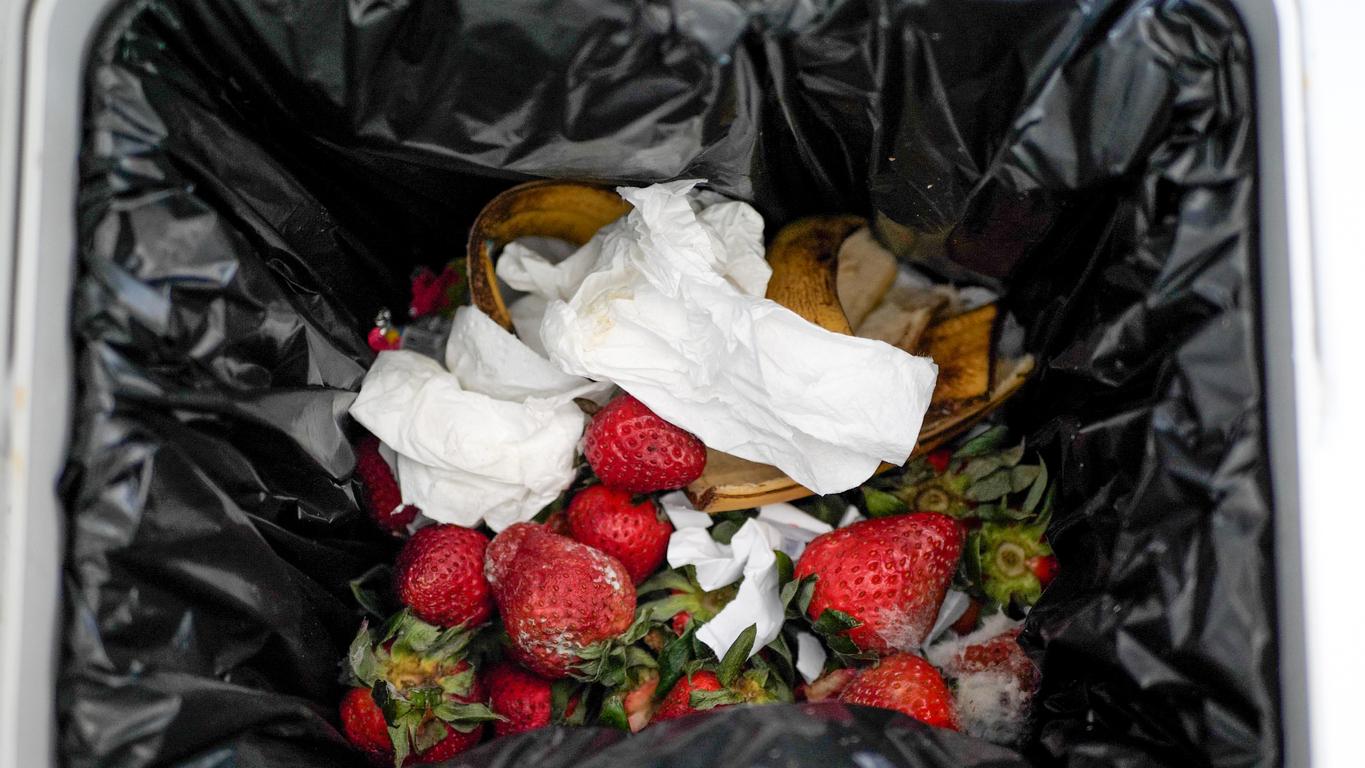
You would never intentionally feed your dog moldy food (hopefully), but that doesn’t mean it won’t happen. Dogs get into the trash all the time and that’s where a lot of moldy food ends up. Mold toxins can cause vomiting, tremors, seizures, an irregular heartbeat, a lack of coordination, and even death, according to GoodRx Health.
Uncooked dough with yeast
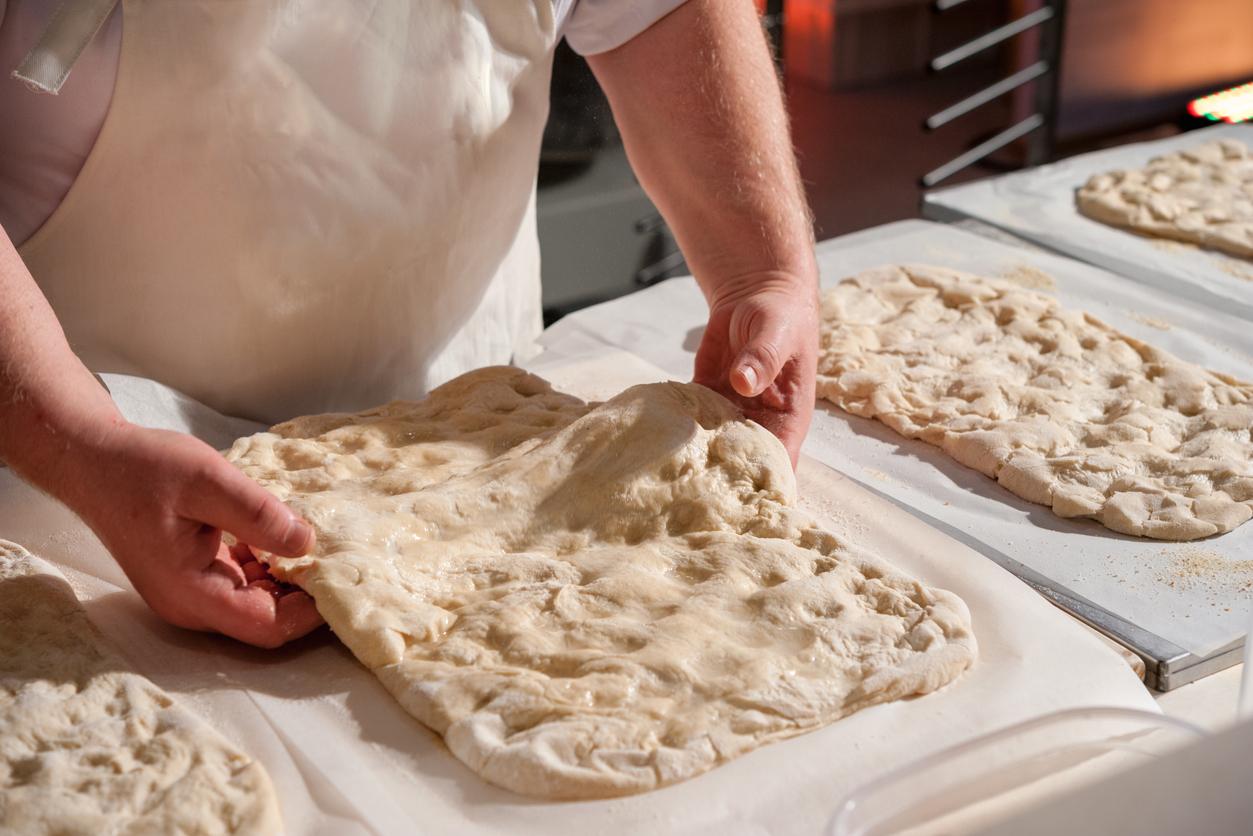
The yeast in uncooked dough can rise in your dog’s stomach, causing it to bloat and possibly twist — this is a life-threatening situation. A bite of cooked bread should be fine, but avoid uncooked dough with yeast at all costs.
Salt
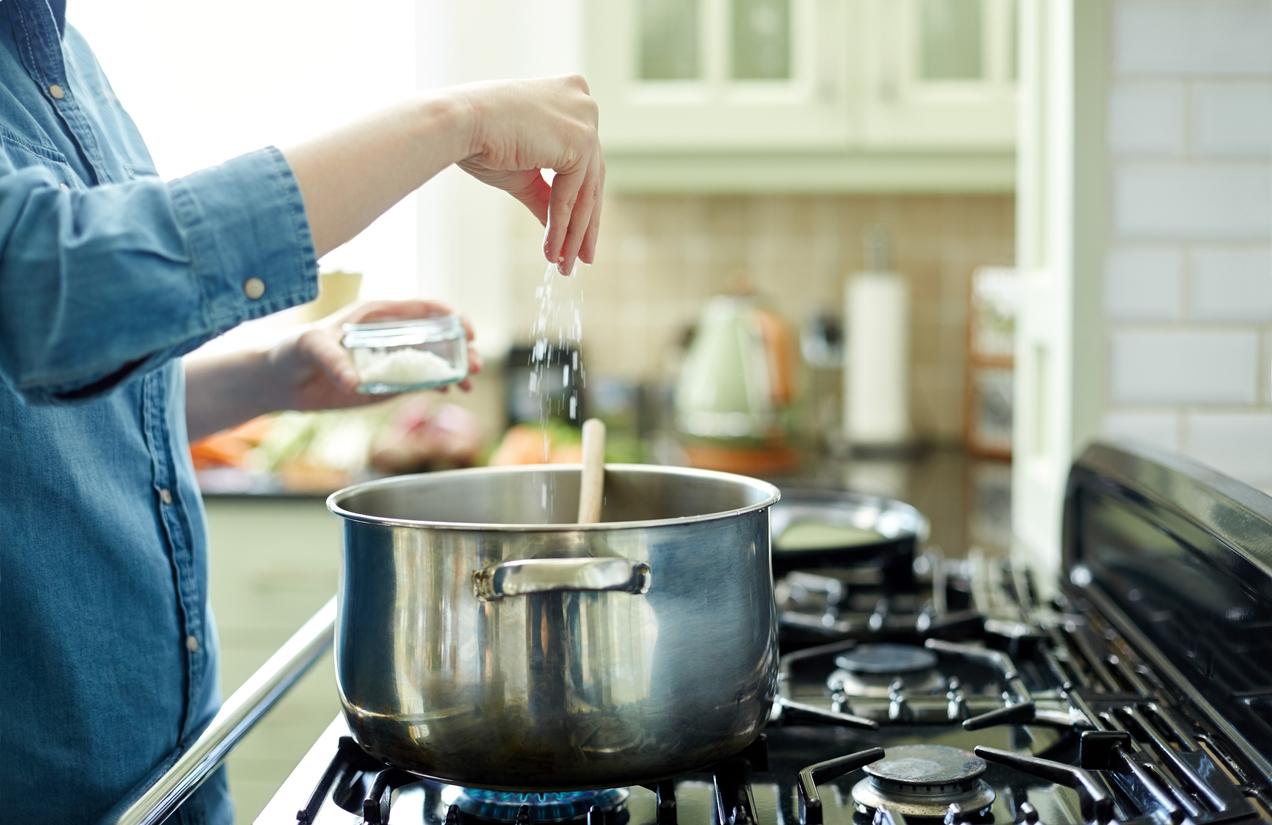
According to Healthline, a dog can end up with salt poisoning if they eat too much salt. This can cause vomiting, diarrhea, tremors, fever, seizures, neurological disorders, and more. Avoid sharing salty foods such as popcorn or pretzels with your dog.
Fried foods
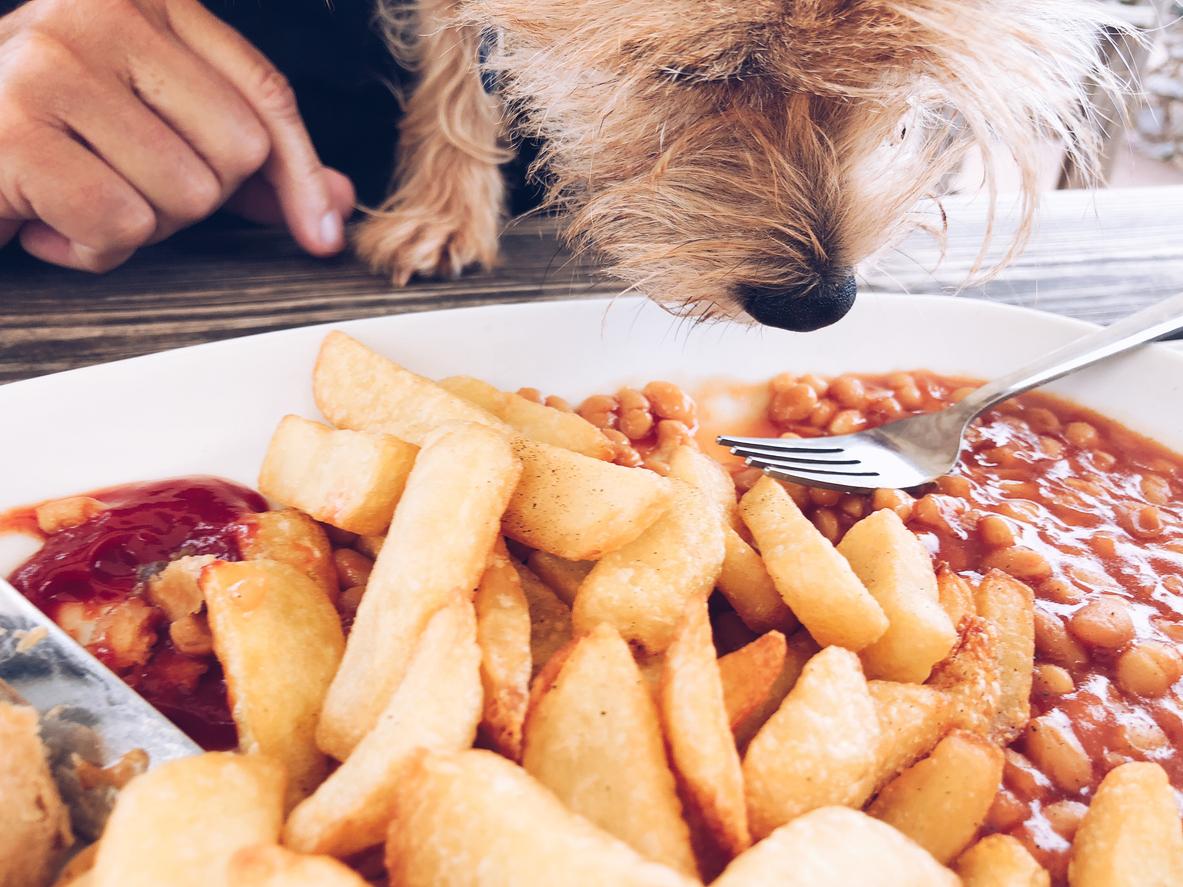
Fried foods aren’t the best for humans and they’re not that great for dogs either. According to the Food and Drug Administration (FDA), these foods can give your dog a stomach ache, or something more serious like pancreatitis. Don’t give in to their longing looks!
Macadamia Nuts
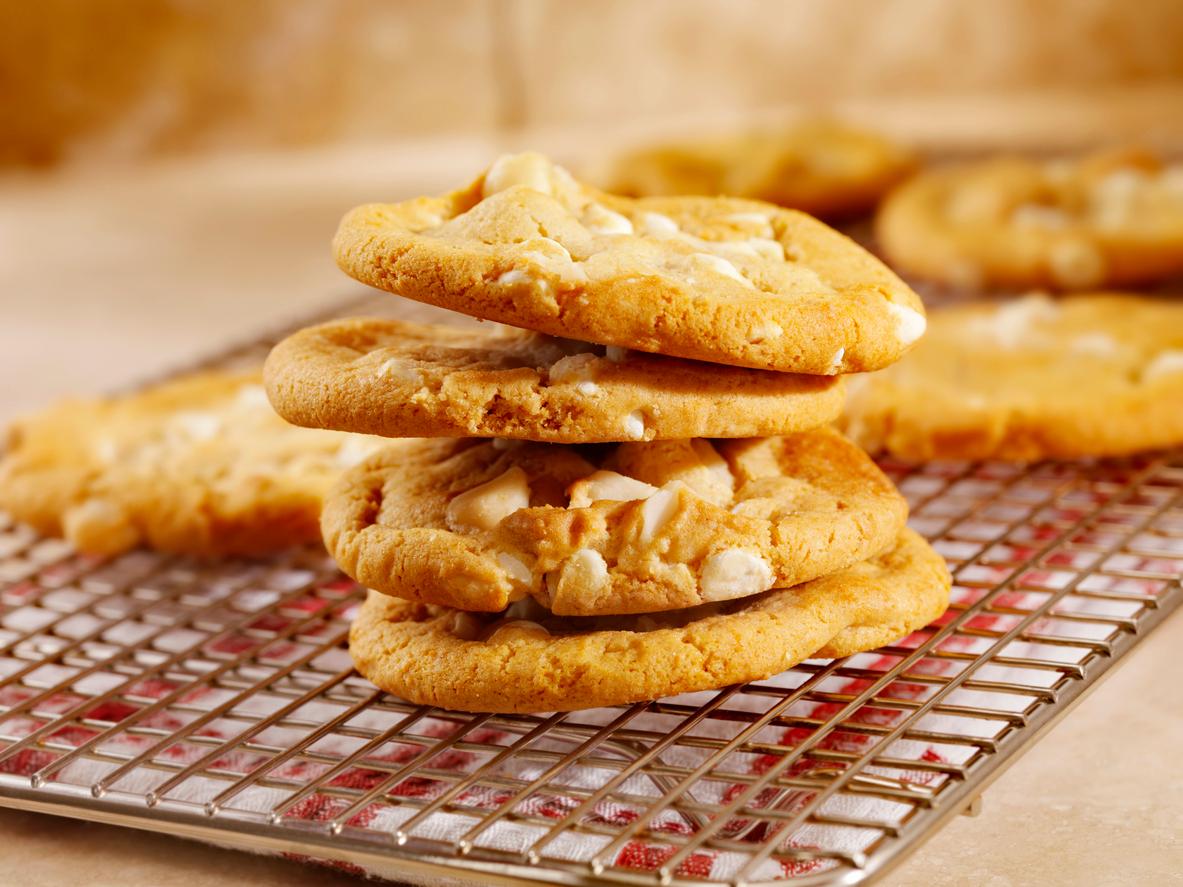
Macadamia nuts contain an unknown toxin that can cause a lot of harm to dogs, Healthline explained. Similar to avocados, they have a high-fat content that can lead to a dog developing pancreatitis. Yes, this means that macadamia cookies are off-limits.
Corn on the cob
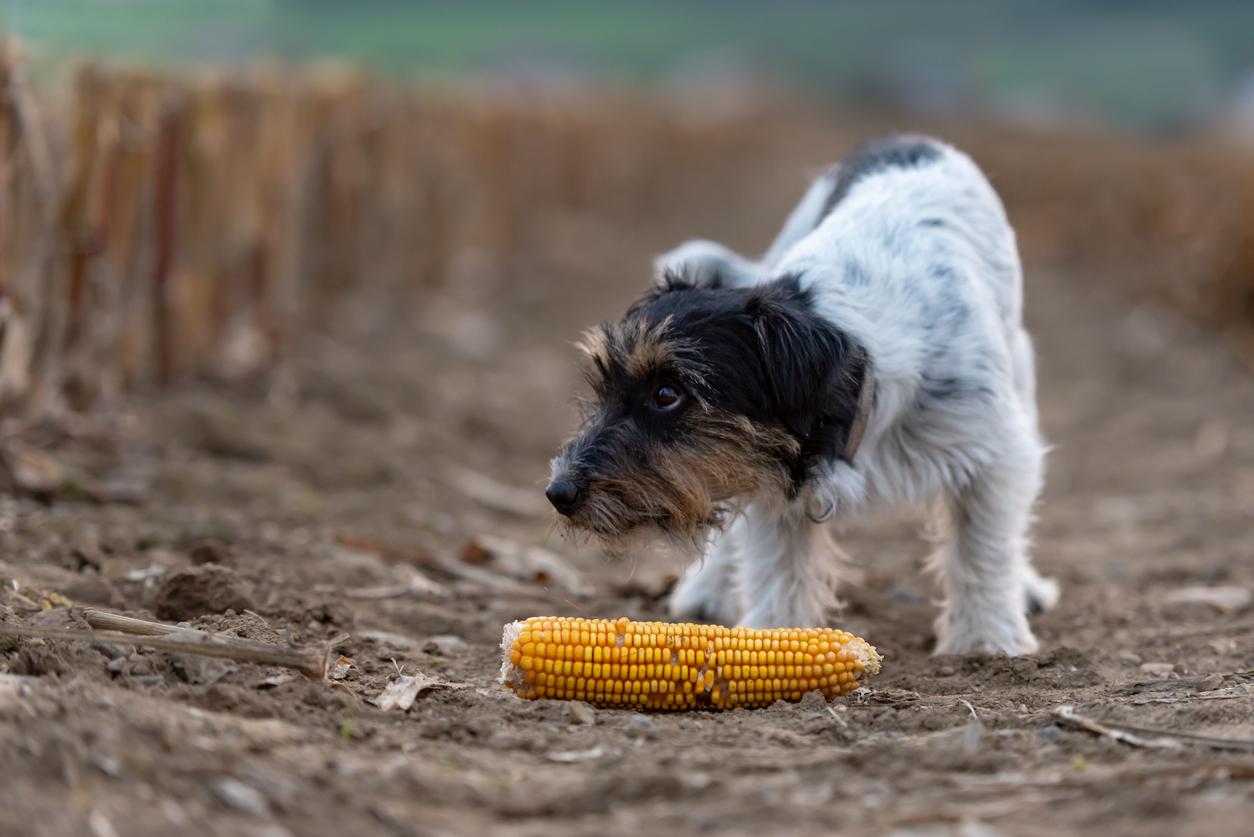
The Battersea Dogs and Cats Home recommended avoiding corn on the cob. Corn can be digested by dogs, but it’s the cob that presents the real danger — it can cause a blockage in the intestine.
Artificial sweeteners
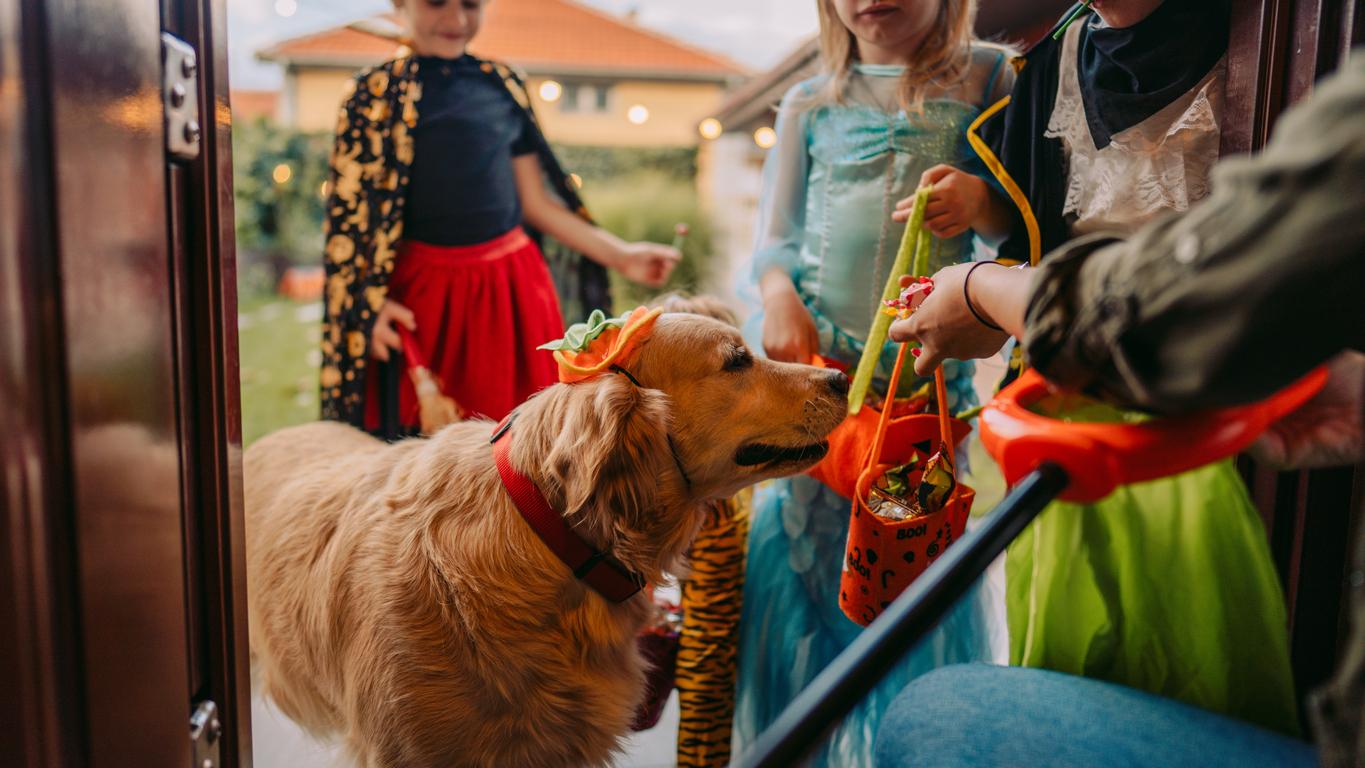
Artificial sweeteners can be found in a variety of different foods, so once again, it’s important to double-check the ingredients even if you think something is safe. Like some peanut butters, many products have xylitol. These sweetened foods can lead to blood clotting and liver failure.
Chives
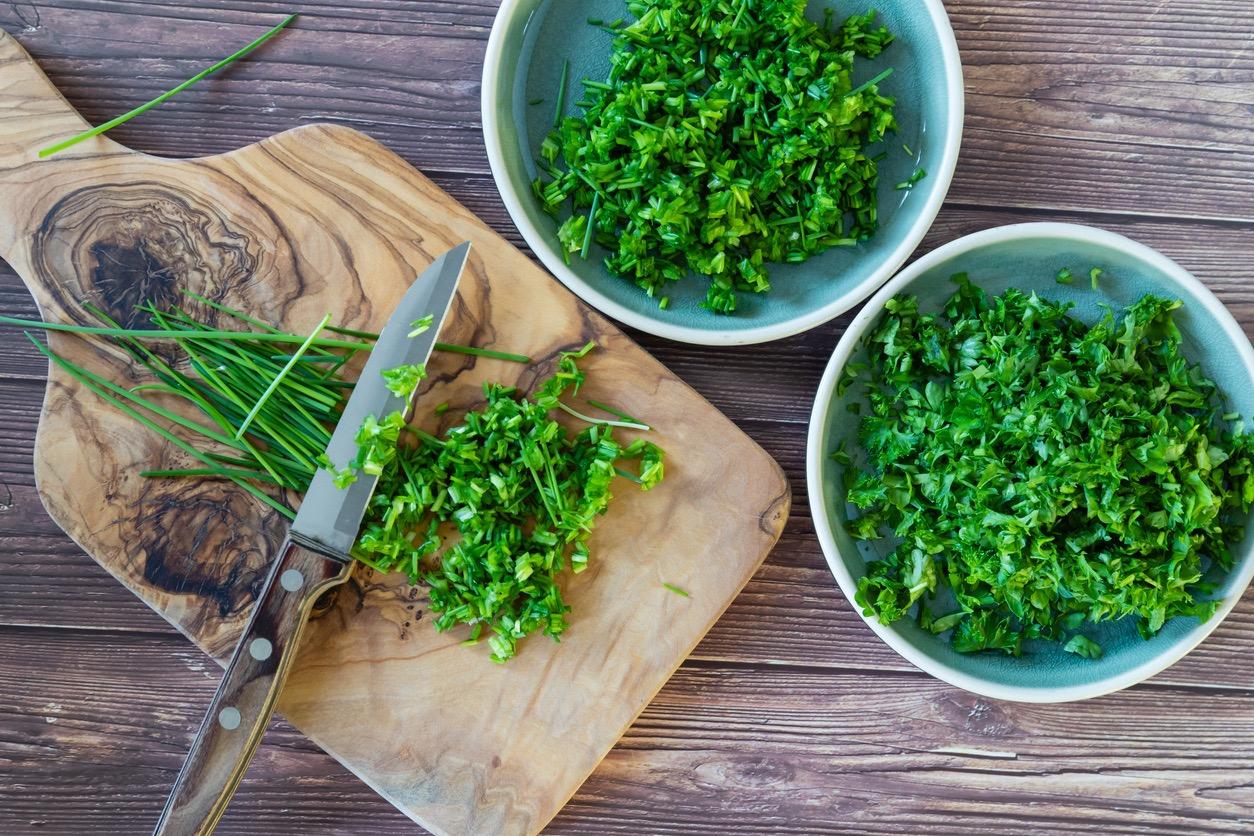
Many people grow chives at home, as it’s a relatively easy and low-maintenance plant. Just make sure your dog isn’t snacking on it, because it can cause some gastrointestinal irritation and red blood cell damage, according to the Battersea Dogs and Cats Home.
Cooked bones
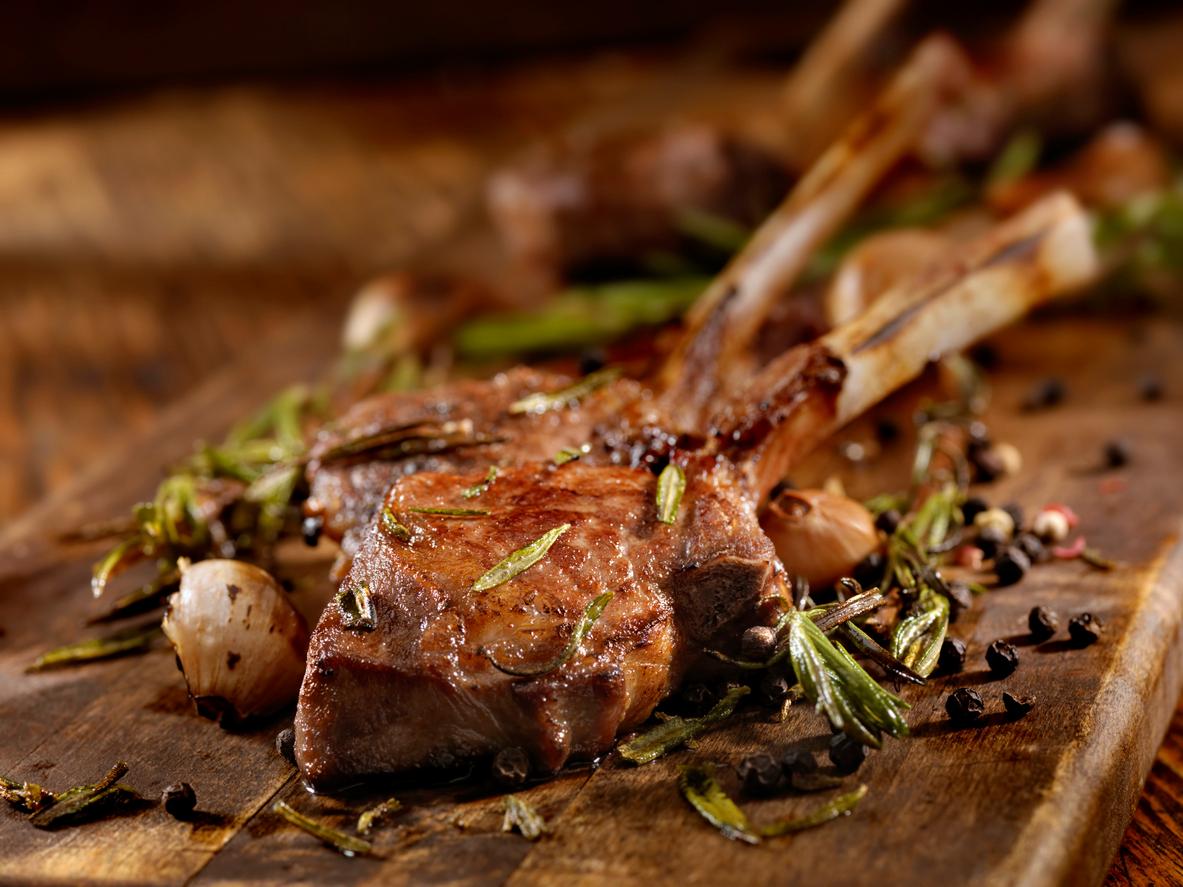
Cooked bones can quickly turn dangerous. On the least harmful side of things, they can splinter or cause constipation, whereas the worst consequence could be a perforation of the gut. There are lots of other alternatives out there that are much safer.
Raw eggs
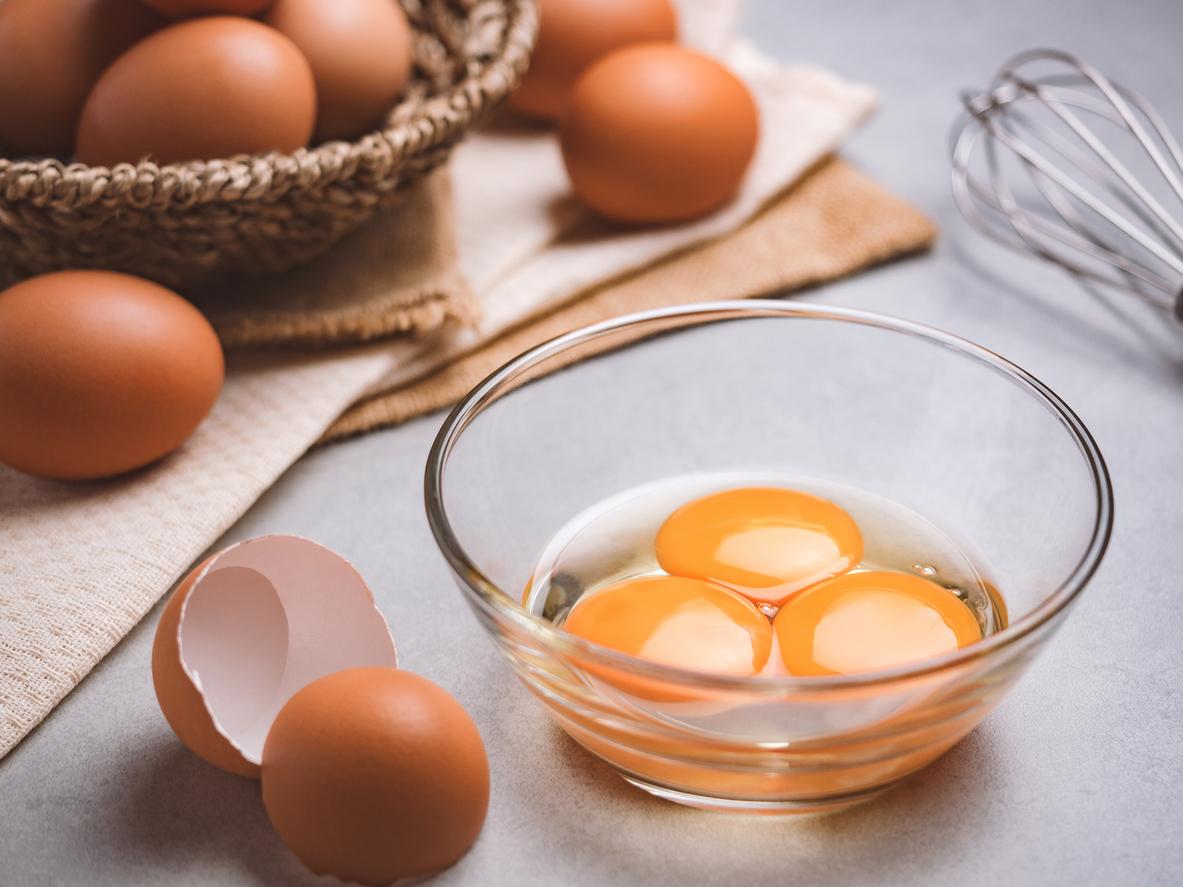
Just like raw meat, raw eggs are also a food that should be avoided. There’s still the risk of bacteria, but eggs also contain avidin, an enzyme that decreases the absorption of biotin, according to the American Society for the Prevention of Cruelty to Animals (ASPCA). This can cause skin or coat problems.
Milk and dairy
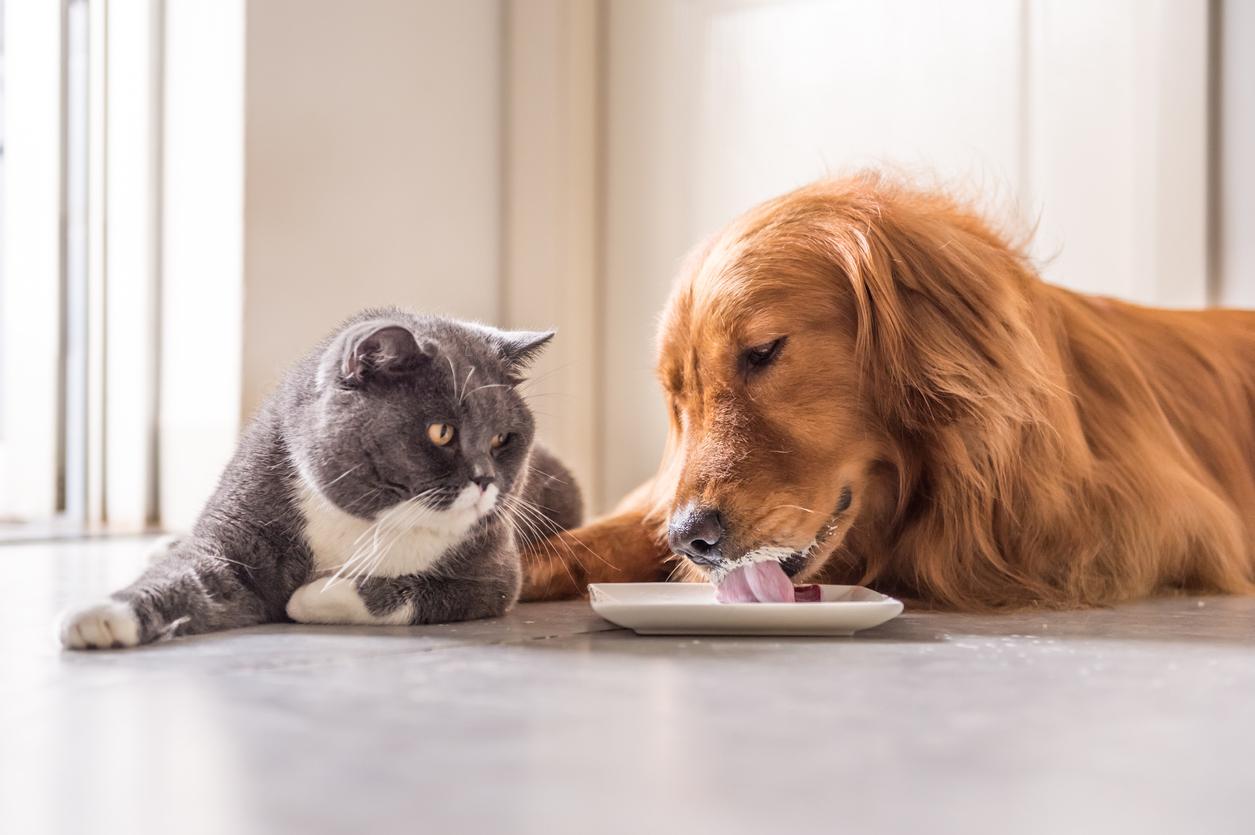
In general, milk and dairy aren’t great for dogs. Dogs don’t have a lot of lactase — an enzyme that helps break down milk — so consuming dairy often leads to digestive problems.
Coconut
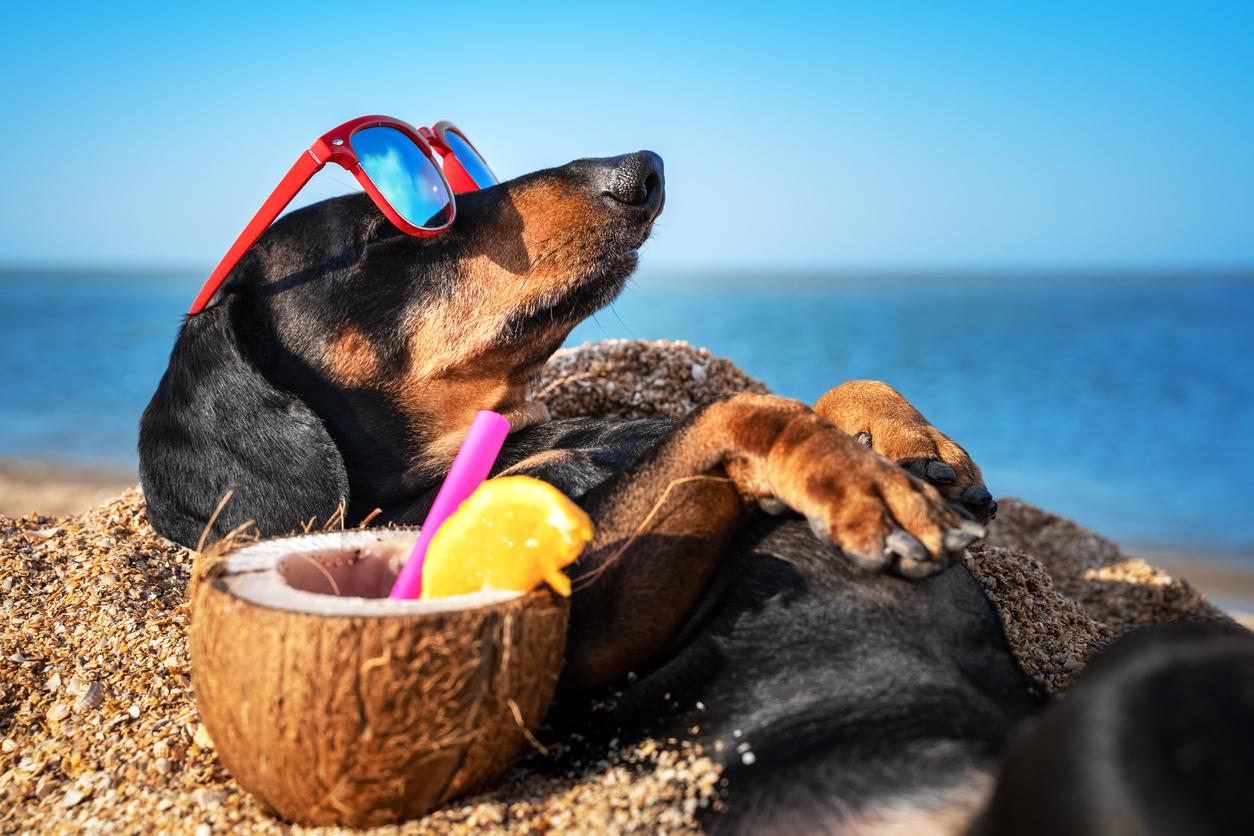
Most of us aren’t feeding our dogs coconut, but just in case, the ASPCA said it’s probably not a good idea. Coconut or coconut-based products can cause an upset stomach or diarrhea. So, despite how relaxed the dog in the photo looks, we should probably just stick to water.